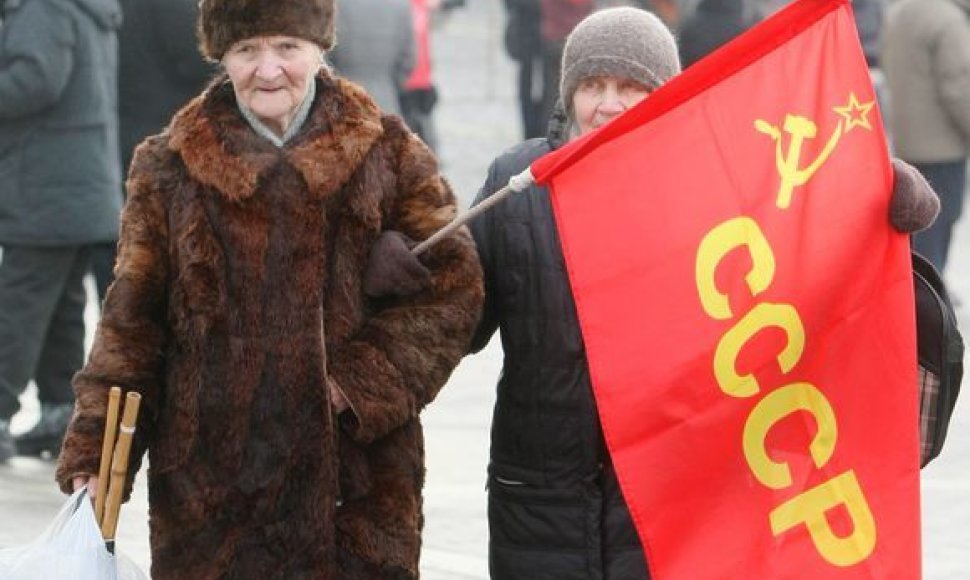The proposals include inviting foreign experts, free legal assistance to victims of the Soviet occupation, a final study of the scope of damages caused by the Soviet Union in Lithuania, which would be published in Lithuanian and foreign languages, hosting an international research seminar focusing on the course and consequences of Soviet occupation of the Baltic states and involving Russian scholars.
Further discussions on implementation of the proposals will be held in a permanent task force that should be set up shortly.
"We will probably set up a permanent commission that would start addressing the matter in due manner. We supported the proposals (of the task force) and will return to the matter in early September," the Prime Minister Andrius Kubilius said on Tuesday.
"I believe we should have in mind that the issues, settlement of the issues, negotiations and discussions could take a longer time, we should be ready," he said.
The prime minister expressed certitude that Russia would be able to look at pages in its history.
"I believe Russia will indeed become a democratic and European country, which, like other European countries, will be able to assess the tragedies that have occurred in its history. Lithuania has also been faced with a rather painful confrontation with its history, for example, complicity of some Lithuanians in the Jewish Holocaust, we have done this. I see no reasons why Russia shouldn't be able to do the same," he added.
In Kubilius' words, the permanent task force will have a number of tasks related with assistance to individuals seeking reimbursement of damages and raising the compensation issue on the international arena.
According to a survey published earlier this month, 54 percent of Lithuanian people believe the country should demand compensation for Soviet occupation from Russia.
Another 41 percent said no, and 5 percent did not have an opinion.
The survey of 1,012 people, aged 15-74, was carried out by public opinion and market research company RAIT on 30 May-10 June.
The Soviet Union occupied Lithuania in 1940 by sending over 150,000 troops of the Red Army into the country. In 1941-1944, Lithuania was under the Nazi Germany rule, followed by the second Soviet occupation that lasted until 1990. Some 444,000 Lithuanian residents repatriated or fled Lithuania in the 1940-1952 period, 275,000 were taken to labor camps or deported. About 25,000 people were killed in fighting, in addition to more than 20,000 participants and supporters of resistance efforts.
The Western world never acknowledged legitimacy of annexation of Lithuania into the Soviet Union.
The Soviet compensation issue was raised immediately after Lithuania declared independence in 1990. Lithuanian citizens have stated their will in a referendum, where 90 percent of voters demanded that Russia should not only withdraw Soviet troops from Lithuania's territory but also reimburse the damages caused by and related to the Soviet occupation.
In 2000, the parliament passed a law, authorizing the government to initiate talks with Russia and seek that the Russian Federation compensated the damages incurred by the people and state of Lithuania.












